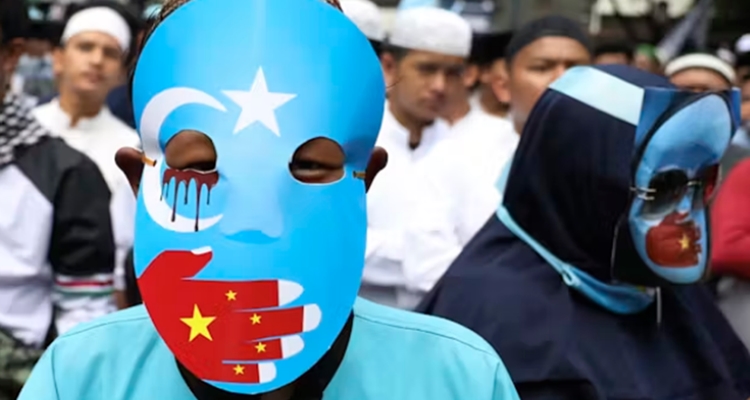
Henan. Regions within China may be starting to impose even stricter online censorship than is typical elsewhere in China. In 2023 in Henan, “netizens…began reporting an uptick in inaccessible websites that were accessible elsewhere in the country” (“Henan Develops Its Own Regional Great Firewall, Adding Layers to China’s Censorship,” China Digital Times, May 19, 2025).
According to researchers at Great Firewall Report, which is dedicated to “advancing the understanding and spreading the awareness of Internet censorship,” especially in China: “While the Henan Firewall is less sophisticated and less robust against typical network variability, its volatile and aggressive blocking of second-level domains made it block ten times more websites than the GFW at some points in time.” Their research suggests “that the Henan Firewall is the first known deployment of a regional firewall in China” (the authors’ emphasis).
Burma. Mizzima reports that Burma’s junta “has constructed one of the world’s most repressive digital control systems, criminalizing online speech, jailing thousands for digital expression, and shutting down internet access in resistance-held areas. Now in its fourth year, the regime’s digital crackdown is powered by Chinese surveillance technology and biometric infrastructure. Cooperation between the junta and China has transformed Burma into a testing ground for twenty-first century digital authoritarianism.”
The export of this digital tyranny is a feature of China’s so-called Digital Silk Road, a part of its Belt and Road Initiative. The Digital Silk Road seeks to advance digital infrastructure as such, not just China’s many repression-enabling digital elements. Countries that agree to participate aren’t necessarily eager to emulate PRC-style control and censorship—although they may find themselves subject to China’s governance in ways they didn’t expect when joining the DSR. But countries eager to follow China’s lead can get its help when implementing their own versions of the Great Firewall and other China-pioneered means of repression.
Singapore. The Singaporean government is submitting to pressure from the People’s Republic of China to persecute members of the spiritual-religious movement Falun Gong. A man has been fined “just for displaying pro-Falun-Gong messages,” Bitter Winter reports (“China Applauds Sentencing of a Falun Gong Practitioner in Singapore,” May 21, 2025).
“On May 16, the China Anti-Xie-Jiao Association issued a statement praising the Singapore judiciary for its sentencing of Peh Teck Ho, a Falun Gong practitioner. China Anti-Xie-Jiao Association presents itself as the largest anti-cult organization in the world…
“The Association and the Chinese government have long pressured Singapore to crack down on Falun Gong. Although Falun Gong is not banned in Singapore, it is often harassed, particularly when local practitioners protest Chinese persecution.”
The court fined Peh 1,000 Singapore dollars (about $775 U.S. dollars), which Bitter Winter observes is “significant…given Peh’s meager salary.” Singapore’s willingness to impose the fine is an “alarming signal that Singapore is bowing” to Chinese pressure to hound Falun Gong practitioners.
Algeria, Angola, Bahrain, Belarus, Bolivia, Burkina Faso, Burundi, Cambodia, Cameroon, Comoros, Cuba, Democratic Republic of Congo, Egypt, Eritrea, Gabon, Kuwait, Laos, Myanmar, Nigeria, North Korea, Oman, Pakistan, Philippines, Qatar, Republic of Congo, Russia, Saudi Arabia, Somalia, South Sudan, Sudan, Syria, Tajikistan, Togo, Turkmenistan, United Arab Emirates, Venezuela, Zimbabwe.
These are the countries that in 2019, in response to a statement by other countries condemning China’s persecution of the Uyghurs, came out with a counterstatement “praising China’s human rights record and dismissing the reported detention of up to two million Muslims in western China’s Xinjiang region. Nearly half of the signatories were Muslim-majority nations, including Pakistan, Qatar, Syria, the United Arab Emirates, and Saudi Arabia, according to the Chinese government….
“The language in the letter echoed previous claims made by China, which has denied allegations of torture or forced political indoctrination in Xinjiang and said that the camps were ‘vocational training centers’ designed to fight terrorism and combat Islamic extremism….
“But reports of China’s abuse of Muslims in the Xinjiang region are rampant…” (CNN, July 17, 2019).
Cambodia, Thailand… Research by Freedom House confirms that many governments, “even democratic ones, are willing to aid autocracies in silencing exiled dissidents if the host nation thinks it’s in its economic interest” (The Conversation, October 24, 2024).
For example, “China has used its economic leverage to compel foreign governments to cooperate, with Cambodia deporting 20 Uyghur asylum-seekers to China after signing 14 trade deals with the country. Similarly, Thailand forcibly returned numerous dissident journalists to China, its largest trade partner….
“Our findings suggest that many countries are willing to sacrifice the civil liberties of foreign dissidents for economic opportunities with authoritarian governments. Autocracies also appear to be strategically targeting vulnerable states with weak rule of law institutions, such as the police, courts or immigration authorities.”
Also see:
Great Firewall Report: A Wall Behind a Wall: Emerging Regional Censorship in China











